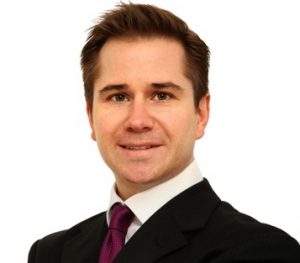
Just as Clark Kent (Superman) and Kara Daniels (Supergirl) performed Herculean exploits behind the guise of mere humans, product managers are challenged to work behind-the-scenes to achieve product success. (Yes, it’s a bit of a stretch. But don’t you like being compared to superheroes?)
Working faster than a speeding bullet. More powerful than a product bottleneck. Able to leap tall requirements in a single bound. Maintaining composure while working without direct authority. Surviving the kryptonite of firefighting and reactivity. It’s tough. And good advice can help.
At the end of every chapter of The Product Manager’s Handbook, I included an interview with a prominent business expert or consultant. Each offered perspectives for different product management challenges. Here are snippets of their words of wisdom.
This is the first of a four-part series of The Product Manager Advice Dossier.
The Many Sides of Brand Management

Mark Rothwell, AVP-Brand & Consumer Marketing, American Family Insurance
I think the best professional advice I ever received is: “Remain curious and tenacious.” This is important for product development, for creative promotions, and for interactions with diverse sets of people. Curiosity makes a person interested and interesting.
The best personal advice is: “Always be empathetic.” That’s great advice for being a successful brand manager because it ensures that you always view things through the eyes of your customers.
Product Managers Can Be Growth Leaders

Scott Davis, Chief Growth Officer, Prophet
CMOs and senior executives are clamoring for strategic growth plans that go beyond the budgetary considerations of dollars and cents. McDonald’s growth plan, for example, has four or five growth imperatives—McCafe being one of them—designed to help the company win in the marketplace.
Product and brand managers need to think in that same way. What are the five major imperatives you need to tackle to actually achieve your growth goals? What are the growth levers—the drivers that are going to take your company forward? If you can answer those questions, you will be in a leadership position to tackle your firm’s growth agenda.
Financial Advice for Product Managers from a CMO

Mark Phillips, Chief Marketing Officer, GE Healthcare
Good product managers do not need a finance degree or to be experts in finance. However, they should have financial skills sufficient enough to do two things: (1) determine the best pricing strategies; and (2) make solid business cases to justify a new product and/or additional distribution and marketing strategies for their products.
The above two items require the individual to be proficient with spreadsheets, have a basic understanding of an income statement (P&L) and be familiar with the basic concepts of break-even analysis and price waterfalls. There are other more sophisticated tools out there, and other financial concepts that would be icing on the cake, but these are the necessary basics. In today’s world, at a minimum, if you are a product manager, you better be familiar with this basic set.
When I was a product manager, and now as a CMO, I spend a great deal of time working on business cases for everything from new products to new sales teams, and of course, marketing dollars! The finance involved is not sophisticated; however, you do need to understand how your company looks at a P&L and the key elements that drive it. No need to get into taxes, interest, and other corporate assessments. Just be able to walk from sales revenue to gross margin to contribution margin to operating profit. And of course, a great product manager will know how much a sales person can drive the ultimate sales of their products, how much a sales person will cost, how many marketing dollars you would need to be successful.
Lastly always befriend your finance team. A positive relationship with them can take you a long way…
Become a Business Partner with Finance

Doug Vaughan, Finance Executive, Board Member
Clearly understand the income statement for your product. Understand revenue and any deductions from revenue. Deeply understand the product’s cost structure and all the other costs (such as sales, engineering, bad debt) associated with bringing the product to market.
Understand the concept of return on invested capital and how that applies to managing the product on an ongoing basis (“What is the trade-off between inventory and service levels?”), as well as how that applies to investment decisions (“What is discounted cash flow?”).
Pricing. Be able to understand a price waterfall as well as how to map features and benefits versus price for your product and versus competitive products.
Forecasting. Understand how to use your firm’s financial forecasting process to spot trends in product line profitability and then take the appropriate actions based on the data.
If you have a good finance partner, make them a part of your team and involve him or her in everything you do. If you don’t have a good finance partner, demand one.
Capture Market Knowledge through Anthropology

Paula Gray, Director-Research & Knowledge Development, AIPMM,The Association of International Product Marketing and Management
As so many companies design and market their products in a global cross-cultural environment, it’s important for product managers to learn about those geographic regions and their cultural characteristics. Without specific training and education in anthropology, a product manager can still find out some key factors that affect and shape the lives of those customers, such as some commonly held beliefs, values, customs, major taboos and the region’s predominant religion. Though this isn’t a deep study, the knowledge will help product managers gain a more complete understanding of some of the findings of an ethnography, and it will allow them to better represent the voice of those customer’s needs.
I think it is also important for product managers to conduct their own informal observations of customers whenever possible. They need to get face-time with these customers in order to gain an understanding of the complexity of these individuals. This informal observation can add insight and a layer of firsthand knowledge to augment the product managers’ own perspective.
Next month, on the first Friday, I will provide part two of the Product Manager Advice Dossier.
